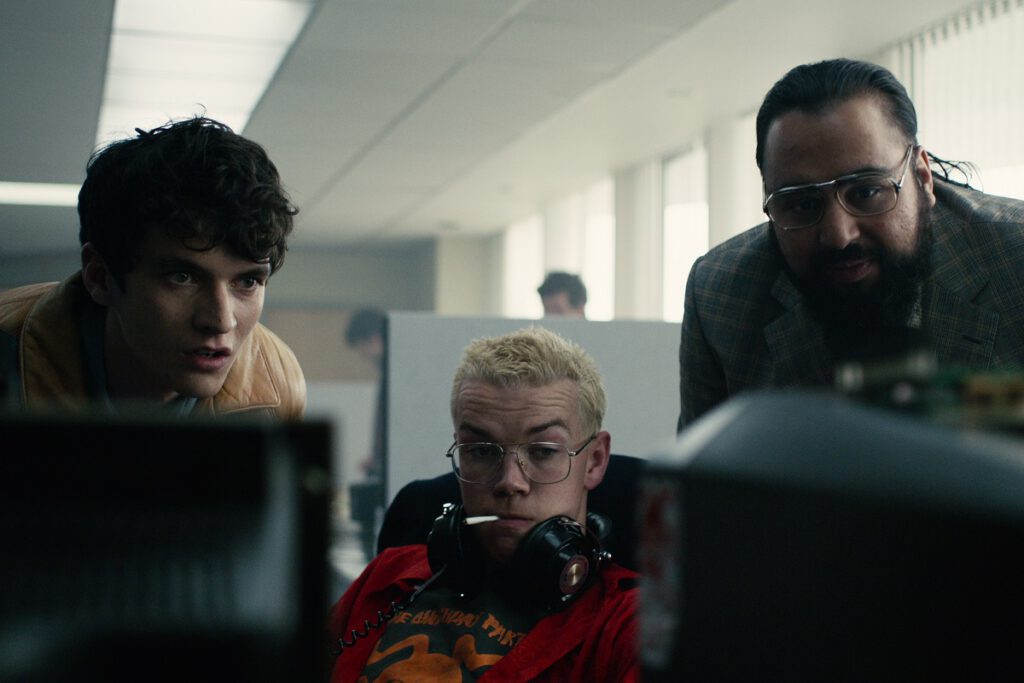Netflix and Charlie Brooker have unleashed something impressive for people to obsess about over the last weekend of 2018. It’s what’s being called an interactive movie named “Bandersnatch,” a new part of the award-winning “Black Mirror” universe. It’s a relatively simple 90-minute movie about an ‘80s game developer named Stefan Butler (Fionn Whitehead) who works to develop his favorite Choose Your Own Adventure novel Bandersnatch into a video game. However, you, the viewer, get to control the movie. With your remote or mouse, you make choices throughout “Bandersnatch” that move the narrative in different directions. Some choices are minor—the first is whether you want to eat Frosties or Sugar Puffs for breakfast—while others are major and impact the ending of the movie/game/whatever. It’s certainly innovative and creative, especially as the narrative starts to mirror the interactive experience and Stefan realizes he’s no longer in control of his own actions. The question though is “Is it any good as a film?” I’m torn between choosing “YES” or “NO.” Is there a third option?

First, the story. Stefan takes his proposal for a game called Bandersnatch to a company called TuckerSoft, at which works his idol Colin Ritman (a playful Will Poulter). Ironically, if you choose to accept the offer from the company founder to work at the office, you reach what could be called a dead end as the game is rushed and inferior. Brooker and company then cycle you back as Colin tells you that you chose the wrong path and you have to pick the other one. It’s the first clear sign how meta the whole experience will be, but far from the last. As you make more and more choices for Stefan, the narrative spins around the concept of free will and branching realities. In other words, you’re kind of helping to drive Stefan crazy. At one point, you can even explain the concept of Netflix to him. That’s how meta the whole thing becomes.
Having played multiple branches and seen all the endings of “Bandersnatch” (I think), I can sit back and look at the entire project and…well, I’m not sure. It’s really difficult to judge “Bandersnatch” apart from its interactive concept as the ingenious design is actually a part of the story. So you can’t say, “Would this work without the interactivity” as that interactivity is the foundation of the narrative. That alone is a positive thing. My biggest concern was that the interactivity would merely be window-dressing, options that don’t impact character or storytelling as much as they just provide cosmetic, simple differences. That’s definitely not the case with “Bandersnatch.” Many of your decisions really matter, and you’re allowed to roll the credits after several of them, deciding when the movie ends, or allowing you to go back and choose a different path. (As far as I can tell there are only two options that roll the credits automatically for you, one poignant and one pretty clever.)
So why do I feel kind of hollow at the end of “Bandersnatch”? It’s not really a game, in which you invest multiple hours and get deeply involved with the characters whose narrative you’re authoring, and it’s not quite a movie either. I tried to imagine watching someone else “play” “Bandersnatch,” making the choices instead of me, and it’s simply not as well-written or involving as the best episodes of “Black Mirror.” Several of the thematic ideas are underdeveloped no matter how you branch the story, and it ends abruptly. I was waiting for a result of a choice that really shocked me or felt like something that would tie the entire experience together into something that transcended the gimmick. It doesn’t quite happen. There are ideas in “Bandersnatch” about control and creativity that are worth exploring, but they feel like they were often sidelined to maintain the interactivity.
The question on everyone’s mind is going to be if “Bandersnatch” is a fluke or the beginning of a new sub-genre of streaming filmmaking. I like the idea that Netflix is pushing the boundaries of what we should expect when we turn on their service. I also want to see a traditional season of “Black Mirror” more than I do another one of these.












